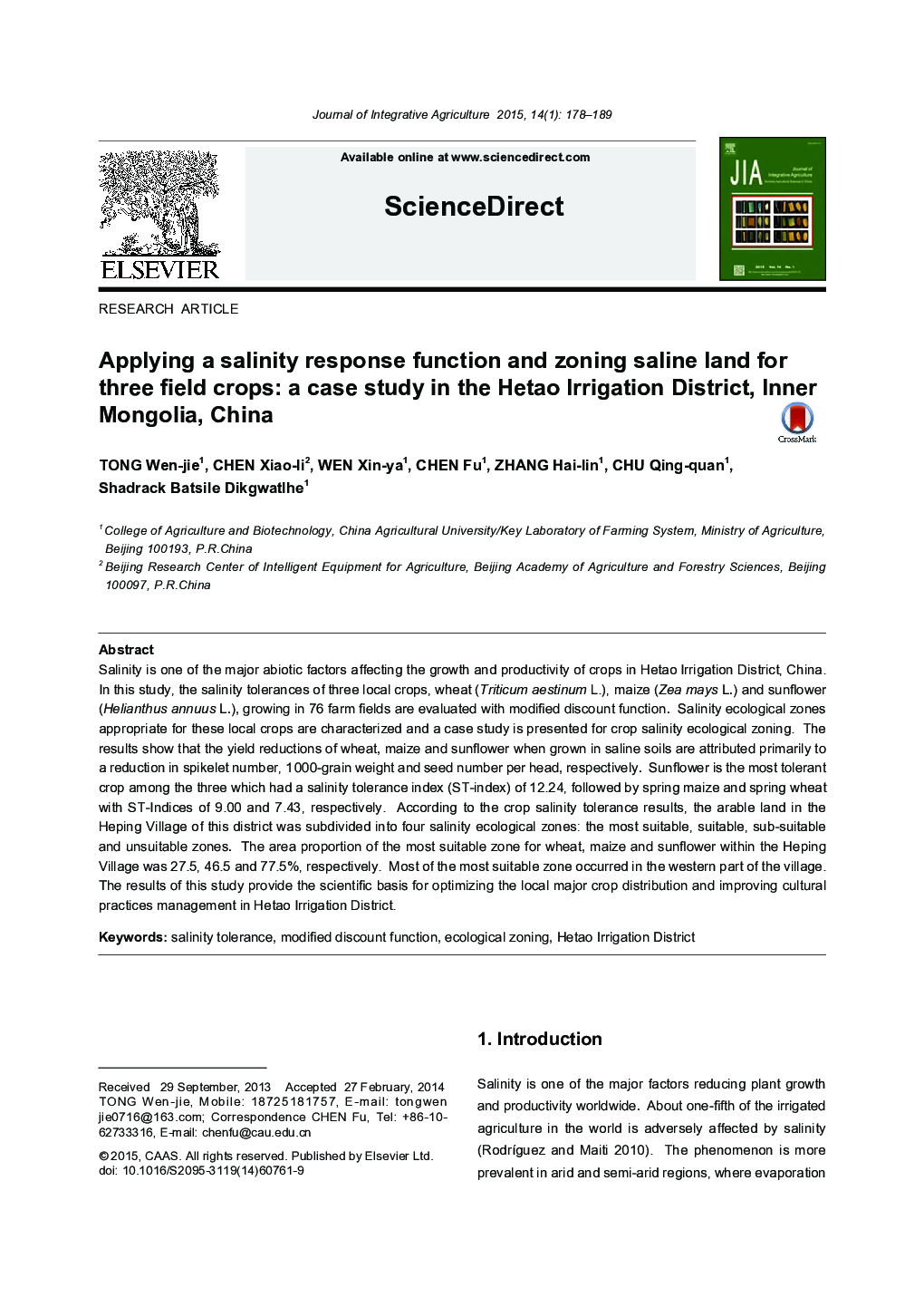| Article ID | Journal | Published Year | Pages | File Type |
|---|---|---|---|---|
| 4494421 | Journal of Integrative Agriculture | 2015 | 12 Pages |
Salinity is one of the major abiotic factors affecting the growth and productivity of crops in Hetao Irrigation District, China. In this study, the salinity tolerances of three local crops, wheat (Triticum aestinum L.), maize (Zea mays L.) and sunflower (Helianthus annuus L.), growing in 76 farm fields are evaluated with modified discount function. Salinity ecological zones appropriate for these local crops are characterized and a case study is presented for crop salinity ecological zoning. The results show that the yield reductions of wheat, maize and sunflower when grown in saline soils are attributed primarily to a reduction in spikelet number, 1 000-grain weight and seed number per head, respectively. Sunflower is the most tolerant crop among the three which had a salinity tolerance index (ST-index) of 12.24, followed by spring maize and spring wheat with ST-Indices of 9.00 and 7.43, respectively. According to the crop salinity tolerance results, the arable land in the Heping Village of this district was subdivided into four salinity ecological zones: the most suitable, suitable, sub-suitable and unsuitable zones. The area proportion of the most suitable zone for wheat, maize and sunflower within the Heping Village was 27.5, 46.5 and 77.5%, respectively. Most of the most suitable zone occurred in the western part of the village. The results of this study provide the scientific basis for optimizing the local major crop distribution and improving cultural practices management in Hetao Irrigation District.
